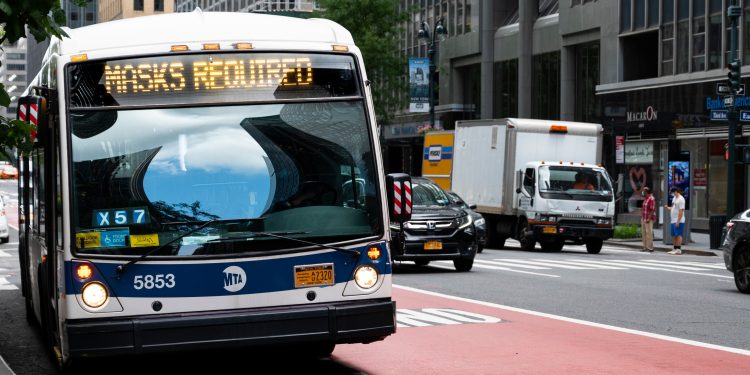Is lockdown an effective response to a pandemic, or would it be better to let individuals spontaneously reduce their risk of infection? Research published today suggests these two highly debated options lead to similar outcomes. A ground-breaking economic-pandemic model, created by an international team of researchers, addresses some of the key policy debates of the COVID-19 pandemic, but it will, in the future, enable governments and policymakers to take tough decisions – and assess effective actions.
The modeling, designed by the team, including MIT experts, has been tested using data from New York City responses to COVID-19 – and it accurately predicted both death rates and the impact on the city’s economy of the first wave of the pandemic.
Prof. Esteban Moro, at the Sociotechnical Systems Research Center at MIT and Universidad Carlos III de Madrid, says the research paper is timely, given the Covid-19 enquiries across the world. Governments across the globe have begun their ‘moments of reckoning’, reviewing the effectiveness of a great variety of policies brought in during Covid-19. For some governments and public health officials, lockdowns were not imposing any tradeoff between health and the economy because if the virus got out of control, the economy would be equally damaged. According to others, letting at-risk individuals spontaneously reduce their risk of infection would have led to the best epidemic and economic outcomes with no tradeoff. These discussions have continued without reaching a consensus.
The international consortium’s innovative model offers high-detailed data-driven insights, indicating that both enforced lockdowns and voluntary behavioral changes result in comparable tradeoffs between health and economic factors. The model challenges the viewpoint that there is no tradeoff between health and the economy, highlighting that quantitative analysis does not support such claims.
The health-economy trade-off modeling, published today in the journal Nature Human Behaviour, is the culmination of years of work from an interdisciplinary team of researchers with backgrounds in economics and epidemiology, as well as physics, computer science, and applied mathematics, all united by a shared expertise in complexity science.
Led by Marco Pangallo of CENTAI Institute, Italy, and Alberto Aleta of Universidad de Zaragoza, the international research group combined economic modeling with epidemic data to create a holistic tool that can predict health-economy outcomes from pandemic policy decisions. The model’s accuracy has been proven in predicting death rates and impact on the economy in the first wave of the pandemic in New York City.
The research paper makes a number of conclusions on the effectiveness of government interventions, including:
- Both stricter lockdowns and strong behavior change led to more unemployment and fewer Covid-19 deaths.
- They lead to more jobs lost and to more lives saved among low-income workers, while they make less of a difference to high-income workers.
- Closing non-customer-facing industries such as manufacturing has little impact on infections but significantly increases unemployment;
- Delaying the start of protective measures does little to help the economy and worsens epidemic outcomes in all scenarios;
The model represents a significant advancement in aiding governments to plan for future pandemics. Its comprehensive detail has revealed that low-income workers bear a greater impact from policy decisions related to the health-economy trade-off. While the specific trade-offs may vary in future crises, the development of computational models simulating realistic synthetic populations in real-time is crucial. This requires interdisciplinary collaborations similar to this one, underscoring the importance of such joint efforts in effective pandemic preparedness.
The research team includes researchers from CENTAI Institute Turin; University of Zaragoza; Complexity Science Hub Vienna; Universidad Carlos III de Madrid; Northeastern University (Boston & Portland); Institute of New Economic Thinking at the Oxford Martin School; University School of Public Health Bloomington; Massachusetts Institute of Technology; and the Santa Fe Institute.


